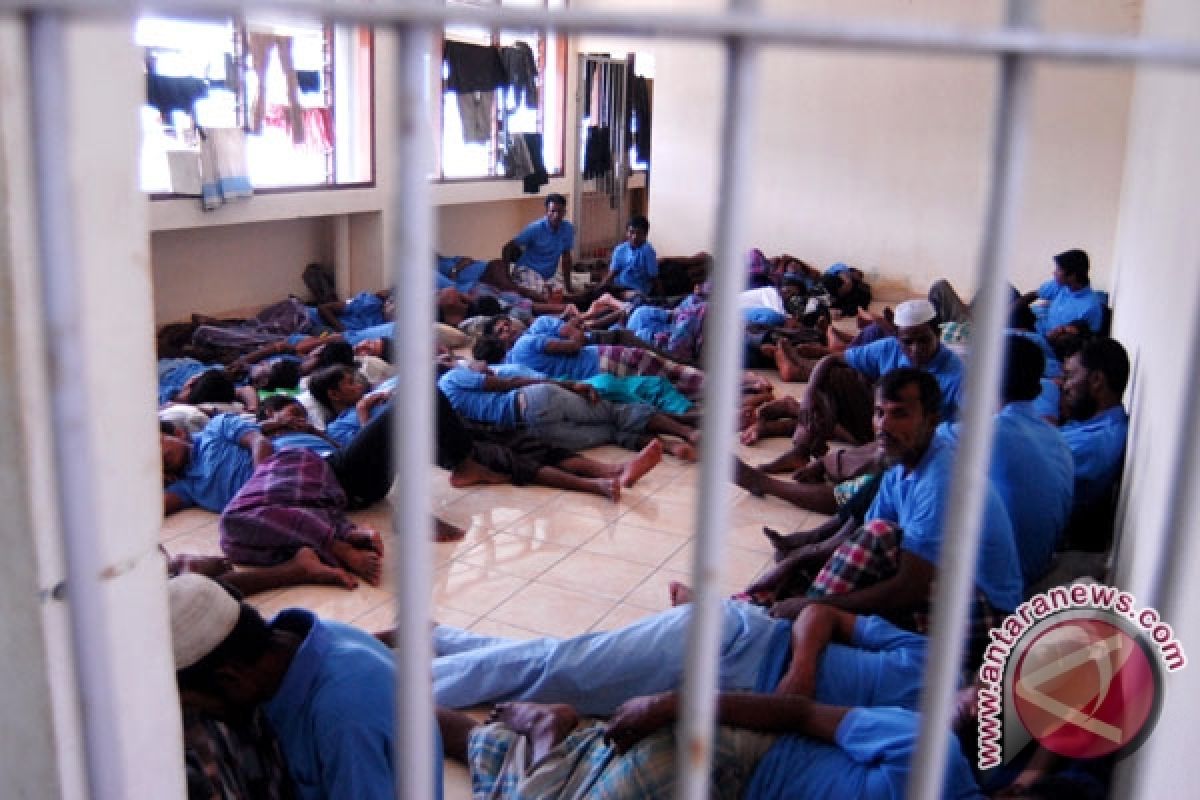"All four of us returned because we were starving."Kendari (ANTARA News) - Thirteen illegal immigrants from Myanmar, who were detained at a hotel for three weeks in the city of Kendari in South East Sulawesi, are thought to have escaped from the region.
"There`s a chance that those 13 illegal immigrants have escaped out of Southeast Sulawesi through the ports of Kolaka and Bajoe towards South Sulawesi (Sulsel)," said the Head of Immigration Department in Kendari, Tafsil Juned, on Friday.
Juned added most illegal immigrants in Indonesia had been held captive in Kendari due to the overcrowding of immigration camps in Makassar, South Sulawesi.
"The immigration office is trying its best to facilitate the shifting of immigrants to Makassar, but it is still waiting for transportation costs," he claimed.
Prior to this incident, 17 immigrants escaped the watchful eye of the Immigration Department, but four immigrants returned due to starvation.
"All four of us returned because we were starving. There was not one person or resident that wanted to help us because they were scared," said Ihsan, a 29-year-old illegal immigrant with a Malay dialect.
As many as 51 illegal immigrants from Burma, who have been held captive for three weeks, have requested to be released.
"We need a confirmation on whether we will be released and sent to our original destination, Australia, or will we be tried in the court. Don`t just keep us captive in a hotel without any certainty," said Imam Husen, a 38-year-old immigrant.
Many Burmese immigrants were found in several locations, such as the sub-district of Siompu, the regency of Buton and the regency of Bombana. The authorities found as many as 57 in Buton and 43 in Bombana.
The immigration department in Kendari has sent as many as 47 immigrants to Makassar.
"Why have they sent several immigrants to Makassar even though we were captured together? We need a confirmation on whether we will be released or not. Our families, our children, wives and parents are waiting," Imam said.
The immigrants who communicated with a Malay dialect chose Australia as their destination country, because of the employment they were promised by immigration traffickers. They were also hoping to send a part of their income back to their parents in Burma.
"Among us, there are several palm plantation workers and builders who have worked in Malaysia for around 20 years, but it does not pay well," Husen said.
(Uu.AH/INE/KR-BSR/F001)
Editor: Priyambodo RH
Copyright © ANTARA 2012











